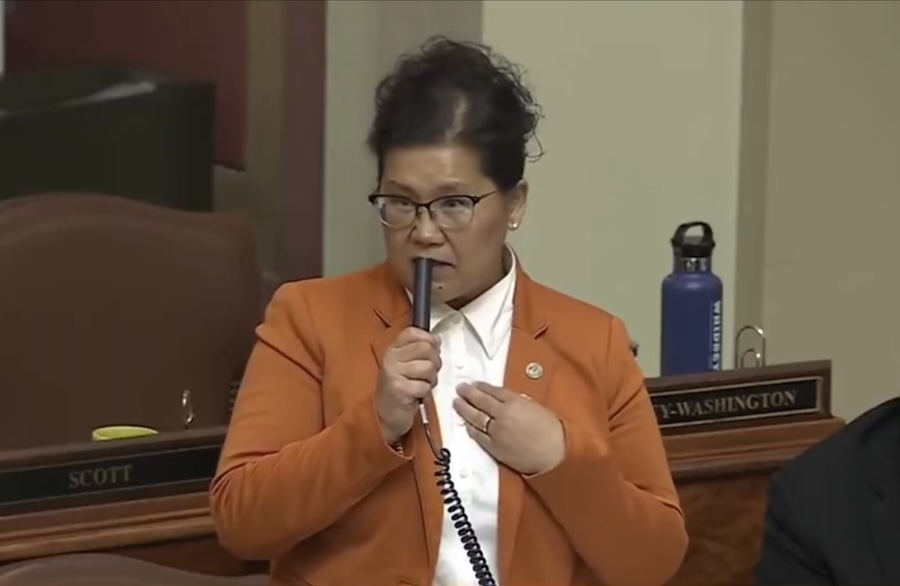Politics
JUST IN: Democrat Politician Says She’s An Illegal Alien

On Monday, Minnesota State Representative Kaohly Vang Her (DFL–St. Paul) publicly admitted on the House floor that she and her family are living in the United States fraudulently. The revelation came during a House session, when Rep. Her recounted a personal story from her childhood.
“Because his mother had died, my father, as the one processing the paperwork, put my grandmother down as his mother,” she said.
“And so I am illegal in this country. My parents are illegal here in this country.”
The statement immediately garnered attention from lawmakers, many of whom are calling for an investigation—and possible removal from office. Kaohly Vang Her, currently serving her fourth term representing District 64A, holds the powerful title of Deputy Speaker Pro Tempore and co-chairs the Commerce, Finance, and Policy Committee.
WATCH:
Her resume boasts degrees from the University of Wisconsin and Northeastern University, along with a current pursuit of a doctorate from the University of St. Thomas. Born in Laos and raised in Wisconsin, Her says her family came to the U.S. as refugees when she was just four years old. In past biographical statements, she has highlighted her parents’ hard work and their American dream.
“Born in Laos, my family came to the United States as refugees when I was four years old,” her campaign site reads. “I grew up in Appleton, Wisconsin, a paper town where my father worked at the local paper factory and my mother as a teacher’s aide.”
If Rep. Kaohly Vang Her was speaking literally when she admitted on the Minnesota House floor that she is “illegal in this country,” then her continued service as a state legislator may be unlawful under Minnesota law. The state constitution requires that all members of the legislature be U.S. citizens.
If Her is not a citizen and is currently living in the United States unlawfully, she would be ineligible to hold elected office in the state. Beyond the state-level implications, Her’s admission could also carry federal consequences.
If she is in the country without legal status, she could be subject to deportation under federal immigration law. Depending on how her name appears on official documentation—such as voter rolls, government payroll, or campaign filings—there could also be additional legal exposure for making false statements or misrepresenting her citizenship status.
If she is, in fact, not a U.S. citizen, her role as an elected lawmaker would not only be inappropriate but potentially illegal.
The admission is particularly explosive amid a nationwide surge in immigration enforcement. Recently, ICE has launched major raids in Los Angeles, arresting over 100 individuals in the Fashion District and other areas. The response sparked chaos—burning vehicles, blocked freeways, and federal troops deployed to restore order.
President Trump, who authorized 2,000 National Guard troops to Los Angeles without Governor Gavin Newsom’s consent, declared the violent protesters “paid insurrectionists” and has doubled down on calls for tougher immigration policies.
Nationwide, over 139,000 people have been deported this year, including during high-profile operations in Martha’s Vineyard, New York, and Houston. Against that backdrop, a sitting state lawmaker confessing to illegal status—without consequence—could be a tipping point.

